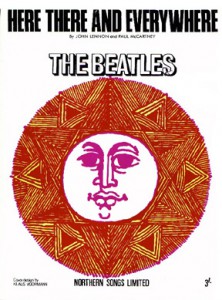
"Here, There and Everywhere" is a song by the English rock band the Beatles from their 1966 album Revolver. A love ballad, it was written by Paul McCartney and credited to Lennon–McCartney. McCartney includes it among his personal favourites of the songs he has written. In 2000, Mojo ranked it 4th in the magazine's list of the greatest songs of all time.

"When I'm Sixty-Four" is a song by the English rock band The Beatles, written by Paul McCartney and released on their 1967 album Sgt. Pepper's Lonely Hearts Club Band. McCartney wrote the song when he was about 14, probably in April or May 1956, and it was one of the first songs he ever wrote. The song was recorded in a key different from the final recording; it was sped up at the request of McCartney to make his voice sound younger. It prominently features a trio of clarinets throughout.
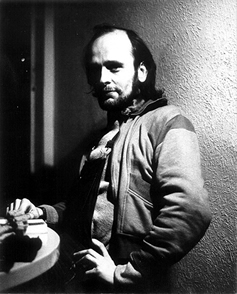
Ian MacCormick was an English music critic, journalist and author, best known for both Revolution in the Head, his critical history of the Beatles which borrowed techniques from art historians, and The New Shostakovich, a study of Russian composer Dmitri Shostakovich.
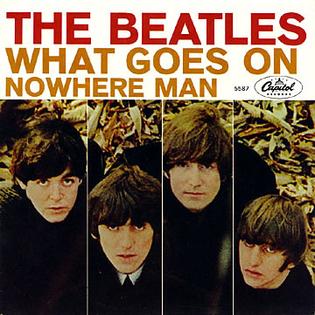
"What Goes On" is a song by the English rock band the Beatles, featured as the eighth track on their 1965 album Rubber Soul. The song was later released as the B-side of the US single "Nowhere Man", and then as the tenth track on the North America-only album Yesterday and Today. It is the only song by the band credited to Lennon–McCartney–Starkey and the only song on Rubber Soul that features Ringo Starr on lead vocals. The song reached number 81 on the US Billboard Hot 100 in 1966.

"Thank You Girl" is a song recorded by the English rock band the Beatles, written by John Lennon and Paul McCartney. It was issued as the B-side of the single "From Me to You", which was recorded on the same day. While not released on an LP in the United Kingdom until Rarities in 1978, the song was the second track on The Beatles' Second Album in the United States. As the B-side of the single "Do You Want to Know a Secret", it hit No. 35 on the Billboard Hot 100 in the spring of 1964.

"Oh! Darling" is a song by the English rock band the Beatles, appearing as the fourth song on the 1969 album Abbey Road. It was composed by Paul McCartney. Its working title was "Oh! Darling ". Although not issued as a single in either the United Kingdom or the United States, a regional subsidiary of Capitol successfully edited it as a single in Central America, having "Maxwell's Silver Hammer" as its B-side. It was also issued as a single in Portugal. Apple Records released "Oh! Darling" in Japan with "Here Comes the Sun" in June 1970.
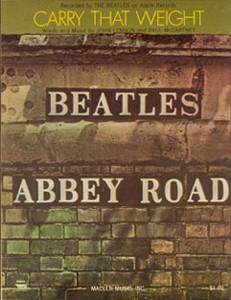
"Carry That Weight" is a song by the English rock band the Beatles from their 1969 album Abbey Road. Written by Paul McCartney and credited to Lennon–McCartney, it is the seventh and penultimate song in the album's climactic side-two medley. It features unison vocals in the chorus from all four Beatles, a rarity in their songs. It is preceded by "Golden Slumbers" and segues into "The End".
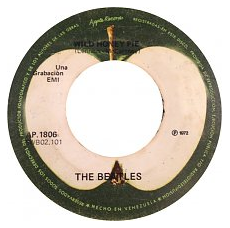
"Wild Honey Pie" is a song by the English rock band the Beatles from their 1968 double album The Beatles. It was written by Paul McCartney and credited to Lennon–McCartney. Less than a minute in length, the song mainly consists of the title being chanted repeatedly and was performed by McCartney without the participation of the other Beatles. The track is often viewed as a filler track and is generally regarded as inconsequential and unmemorable due to its experimental nature.

"Rocky Raccoon" is a song by the English rock band the Beatles from their 1968 double album The Beatles. It was primarily written by Paul McCartney, although credited to the Lennon–McCartney partnership. McCartney began writing the song in Rishikesh, India, where the Beatles were studying Transcendental Meditation in the early months of 1968. John Lennon and Scottish singer-songwriter Donovan, who joined the Beatles on their retreat, also made contributions to the song. A cover version by Richie Havens reached number 76 in Canada in 1969.

"She's Leaving Home" is a song by the English rock band the Beatles, written by Paul McCartney and John Lennon, and released on their 1967 album Sgt. Pepper's Lonely Hearts Club Band. Paul McCartney wrote and sang the verse and John Lennon wrote the chorus, which they sang together. Neither George Harrison nor Ringo Starr were involved in the recording. The song's instrumental background was performed entirely by a small string orchestra arranged by Mike Leander, and is one of only a handful of Beatles recordings in which none of the members played a musical instrument.
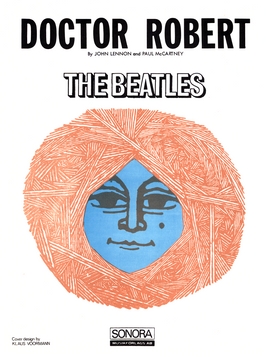
"Doctor Robert" is a song by the English rock band the Beatles. It was released in 1966 on their album Revolver, apart from in North America, where it instead appeared on their Yesterday and Today album. The song was written by John Lennon, although Paul McCartney has said that he co-wrote it. The Beatles recorded the track in seven takes on 17 April 1966, with vocals overdubbed on 19 April.

"Baby's in Black" is a song by the English rock band the Beatles, co-written by John Lennon and Paul McCartney. It appears on the United Kingdom album Beatles for Sale and on the United States album Beatles '65, both released in 1964.
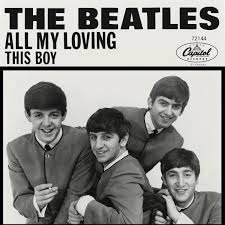
"All My Loving" is a song by the English rock band the Beatles, from their second UK album With the Beatles (1963). It was written by Paul McCartney, and produced by George Martin. Though not officially released as a single in the United Kingdom or the United States, the song drew considerable radio airplay, prompting EMI to issue it as the title track of an EP. The song was released as a single in Canada, where it became a number one hit. The Canadian single was imported into the US in enough quantities to peak at number 45 on the US Billboard Hot 100 in April 1964.
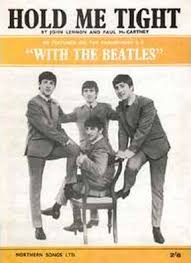
"Hold Me Tight" is a song by the English rock band the Beatles from their 1963 album With the Beatles. It was first recorded during the Please Please Me album session, but not selected for inclusion and re-recorded for their second album.
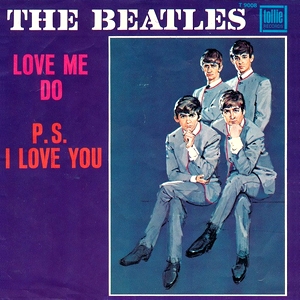
"P.S. I Love You" is a song recorded by English rock band the Beatles in 1962. It was composed principally by Paul McCartney, and produced by Ron Richards. The song was released in the UK on 5 October 1962 as the B-side of their debut single "Love Me Do" and is also included on their debut album Please Please Me (1963). It was later included on the American release Introducing... The Beatles (1964), its reissue The Early Beatles (1965), and the Beatles compilation album Love Songs (1977).

"I'll Get You" is a song by the English rock band the Beatles, written by John Lennon and Paul McCartney, and released by the Beatles as the B-side of their 1963 single "She Loves You". The song was initially titled "Get You in the End".

"Don't Let Me Down" is a song by the English rock band the Beatles, recorded in 1969 during the Let It Be sessions. It was written by John Lennon and credited to the Lennon–McCartney songwriting partnership. The band recorded the song with keyboardist Billy Preston; the single release with "Get Back" was credited to "the Beatles with Billy Preston". Originally released as a B-side, producer Phil Spector excluded the song from Let It Be. The song's first appearance on an album was on the 1970 collection Hey Jude.
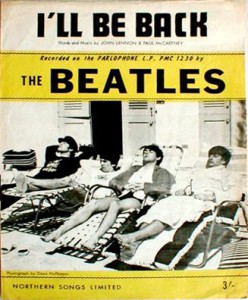
"I'll Be Back" is a song written by John Lennon, with some collaboration from Paul McCartney. It was recorded by the English rock band the Beatles for the soundtrack album to their film A Hard Day's Night (1964) but not used in the film. This song was not released in North America until Beatles '65 five months later.
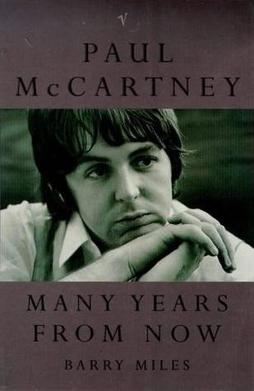
Paul McCartney: Many Years from Now is a 1997 biography of Paul McCartney by Barry Miles. It is the "official" biography of McCartney and was written "based on hundreds of hours of exclusive interviews undertaken over a period of five years", according to the back cover of the 1998 paperback edition. The title is a phrase from McCartney's song "When I'm Sixty-Four", from the Beatles' 1967 album Sgt. Pepper's Lonely Hearts Club Band. The book was first published in the United Kingdom in October 1997 by Secker & Warburg.

"It's Only Love" is a song by the English rock band the Beatles, written by John Lennon and credited to Lennon–McCartney. It was first released in 1965 on the Help! album in the United Kingdom and on the Rubber Soul album in the United States.
















